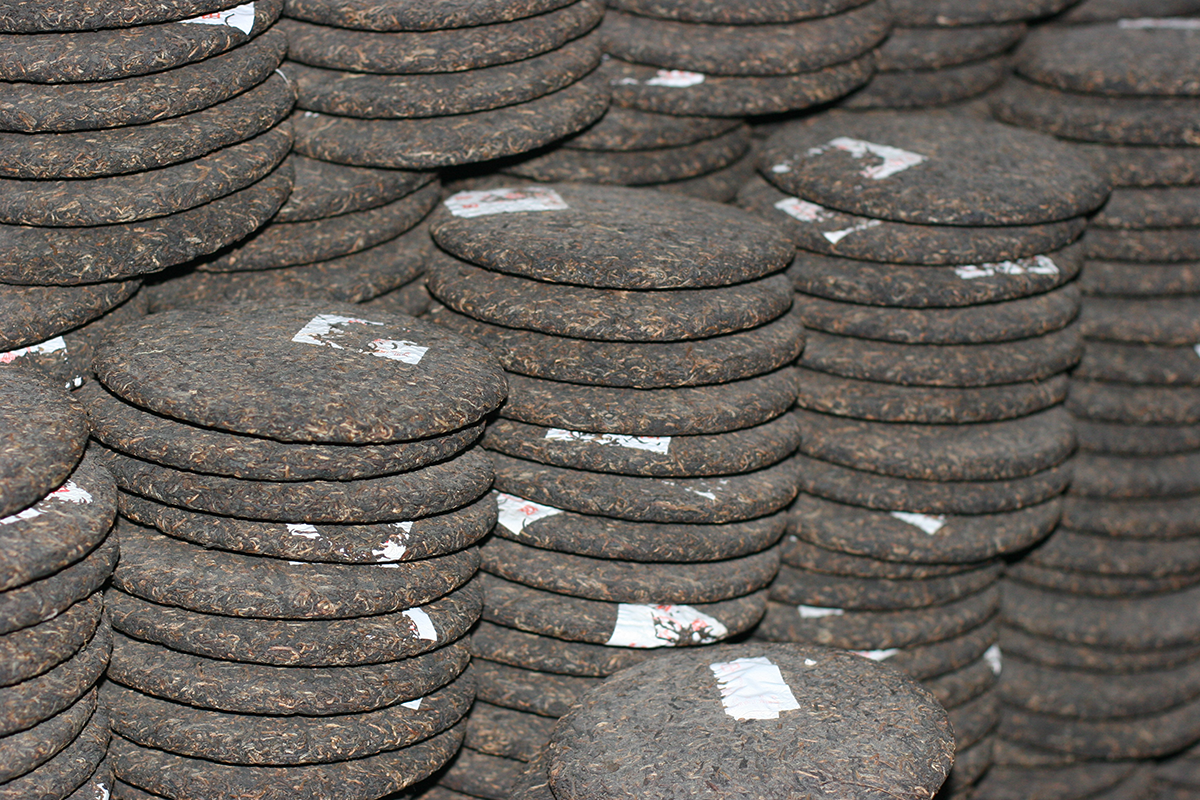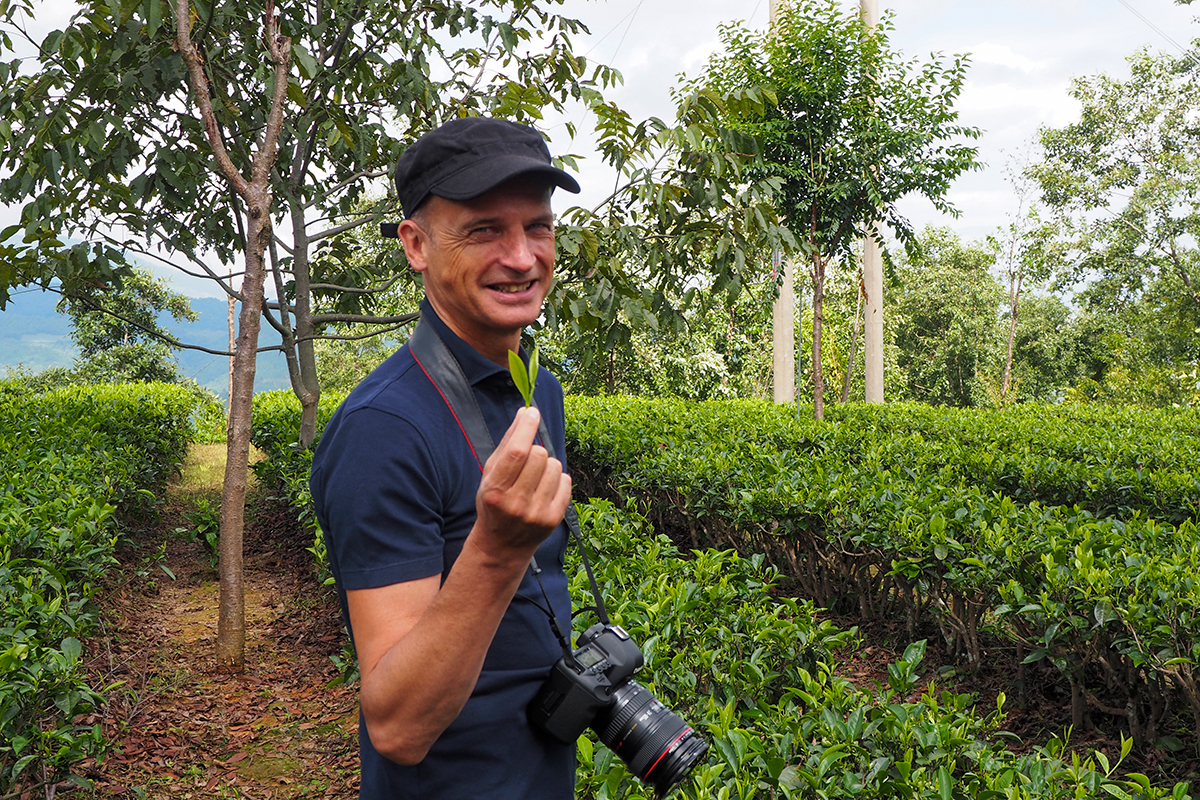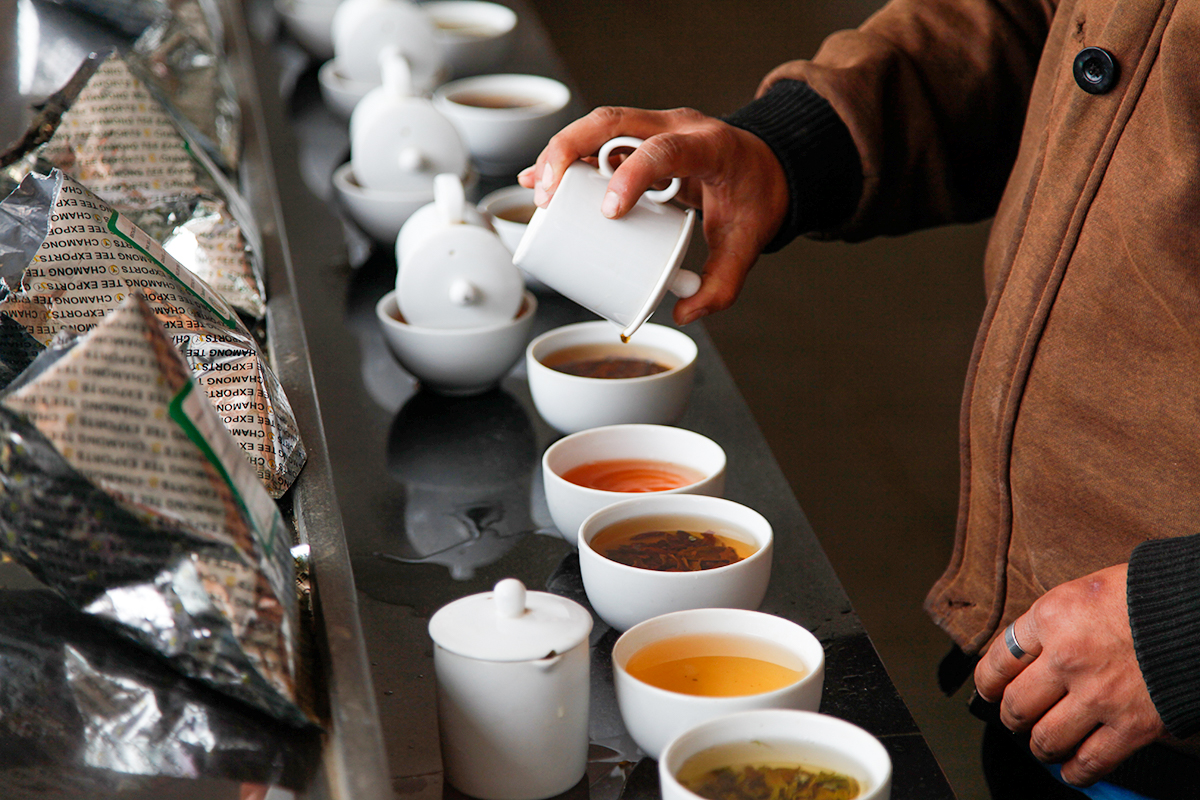Owners are complaining, workers are grumbling, buyers are gradually turning away because of repeated price hikes, and fake Darjeelings are flooding the market. If you love Darjeeling and its people, you can’t just stand by and watch.So what can be done? What bright future can we imagine for this town that likes to call itself the “Queen of the Hills”, for this prestigious tea that makes the dubious claim of being the “champagne of teas”?If we want the workers to stay on the plantations, they must be happy, otherwise their children will leave. So they need to be treated better, and their pay is one of the factors to consider. Looking to the future, the plantation owners need to be prepared to invest. This is happening less and less at the moment because the type of owner has changed, and many are looking for a quick return on investment rather than taking a long-term view. Lastly, we can’t accept that Darjeeling tea is being blended with other teas to reduce its cost price, or that the buyer is always the variable in the equation who has to adapt.
One solution could be fewer but better trained and better paid workers, and more mechanisation, providing it doesn’t affect quality, especially in the peak season. Another possible solution would be for the plantations to buy the leaves from the farmers, who would be given back the land. The farmers would be responsible for all harvesting activities and would negotiate the price of their freshly picked tea leaves with one of the factories. The plantations would concentrate on processing and marketing the leaves. If you’re as devoted to the Land of Thunder (dorje ling) as I am, if you dream of a bright future, these are possible solutions. Surely there are others.
Darjeeling needs to reinvent itself
Every year, the situation in Darjeeling gets worse. I don’t mean the political situation, which has been precarious for decades, but the tea market. Every year, the first harvests get a little more expensive, but the tea doesn’t get any better. Plantation workers rightly complain about low wages. Paradoxically, the owners claim that they are unprofitable or even losing money because of soaring costs. We are seeing gardens close. For the record, the plantation “owners” rent the land from the state. And the planter, who runs the plantation, is just an ordinary employee. Sometimes they leave an estate when they haven’t been paid for months. To top it all off, far more Darjeeling tea is sold around the world than is produced, due to shady deals of all kinds, not least in the region itself.
Indian producers are quick to accuse the Nepalese of all sorts of evil, such as copying Darjeeling teas, but they are mistaken. For a start, Indians themselves import teas from Nepal and market them as Darjeelings. And the Nepalese have been producing delicious teas for the last decade or two, often of a similar standard to Darjeeling, if not better, and at half the price. It’s not counterfeiting, it’s competition. What’s wrong with that? Nepal has a lower standard of living and independent farmers who work long hours, which may partly explain things. Either way, Darjeeling will have to reinvent itself. (To be continued…)
A good start to the year
The first tea of the year to reach Paris from the Himalayan foothills is always a highlight. In terms of the world’s most prestigious tea regions, Darjeeling is where the tea bushes come out of dormancy first, ahead of China and Japan. This year, the first tea to reach us is a Puttabong DJ1. DJ1 means it’s the first batch produced this year. Puttabong is special because it was the first tea garden planted by the British in the mid-19th century in this region on the borders of Tibet, Nepal and Bhutan. This first tea from the first garden is fresh and floral with subtle aromas of vanilla, zest and almond. A good start to the year.
The dark side of tea
With all the demonstrations and riots going on in France right now, these might seem like dark times. Tea has a dark side too. Pu-er cakes are made from fermented tea, or dark tea, as the Chinese called it over a thousand years ago. After the leaves are steamed, they are compressed into a brick, a cake, or a more rustic bird’s nest. These compressed teas improve with time. To drink them, you break the side of the block and the leaves crumble off. They can now be brewed, preferably in a gaiwan, several times in a row, until they have given us all they have to give.
Yanki, a lesser-known producer
Darjeeling tea is not only grown on the large estates created by the British at the height of the Empire. Today, as well as the 83 officially registered plantations, there are a number of local initiatives, small and lesser-known factories that sometimes produce really good teas. Yanki is one of them, and near the village of Mirik, Allan and his family are doing great things with tea leaves. While most Darjeeling planters come from all over India, Allan’s family are indigenous to these mountains and speak the same language as the locals: Nepali. They buy the fresh leaves from the surrounding villagers and use them to make their wonderful teas.
Yanki, une production confidentielle
Darjeeling ne se limite pas à ces grands domaines créés par les Anglais à une époque où le soleil ne se couchait jamais sur les territoires de Sa Majesté. De nos jours, au-delà des 83 plantations officielles et dûment enregistrées, il existe diverses initiatives locales, de petites manufactures plus confidentielles qui produisent parfois de très jolis thés. Yanki, par exemple, fait partie de celles-ci, et du côté du village de Mirik, Allan et sa famille travaillent la feuille de thé avec succès. Tandis que la plupart des planteurs de Darjeeling arrivent de diverses régions de l’Inde, eux sont originaires de ces montagnes et parlent la même langue que leurs habitants, le népali. Allan et les siens achètent les feuilles fraîches des villageois alentour et à partir de ces feuilles ils mettent au point des crus fameux.
Six months without rain
In early spring, the first young shoots appear on the tea bushes. Here in Darjeeling, they arrive after a long winter when the camellia plant goes into dormancy. This lasts for about four months, from mid-November to early March, depending on the weather conditions.
This year, the Himalayan foothills, where the British decided to grow tea less than two centuries ago, have experienced a drought. Six months with little or no rain due to climate change, linked by some to global warming, by others to deforestation. The consequences are reflected in the figures and by mid-March, production was expected to be half of last year’s. However, there are no concerns when it comes to quality. Slow growth results in higher quality and more intense aromas and flavours.
Don’t waste your journey
In India, Henri Michaux wrote, if you don’t pray, you have wasted the journey. This is particularly true in the city of Benares, which Indians now call Varanasi. Here, religion is on every street corner and draws huge crowds to the banks of the holy river in the evenings. You have to stay up late until all that remains are the ghosts of the city and the fervour that is still palpable in the incense smoke and the candles glowing with love for the departed. When it comes to ablutions, whatever the time of day, everyone has their own style.
Making sure that drinking our tea is always a pleasure
I am here in India for the start of the spring harvest. It takes a certain number of days from when we first taste a delicate new-season tea, then buy it and have it flown to France, to when you can buy it in your favourite shop, and this process can’t go any faster. Once the tea arrives in our warehouses, unless it is already certified organic by an accredited organisation, we then send a sample of the tea to an independent laboratory to test it for residues of over two hundred pesticides. For certified organic teas we carry out spot checks. Palais des Thés is the only company in France to apply such strict criteria, assuring its community of tea lovers that its batches meet the highest health and safety standards to ensure their wellbeing when enjoying its teas.
Photo : Alexandre Denni.
More premium teas in more variety
One of the questions I’m asked most is whether the quality of the tea is declining as the number of Palais des Thés stores increases. The question concerns the finest quality, rare, small-batch teas. Let me answer it here. At the moment, we only select one premium tea for every hundred or more batches we get sent. Of course, not all of the teas we receive are worthy of selection, but many could qualify. However, we never ask a producer who has only made 50 kilos of an amazing tea to increase the size of their batch. This could compromise the quality. But there is nothing to stop us from selecting more batches and offering them in just a few stores. This means that the range of premium teas we offer will continue to evolve over time, but also in terms of where they are available. It is a pleasure to find different teas of such quality from one Palais des Thés store to another.



